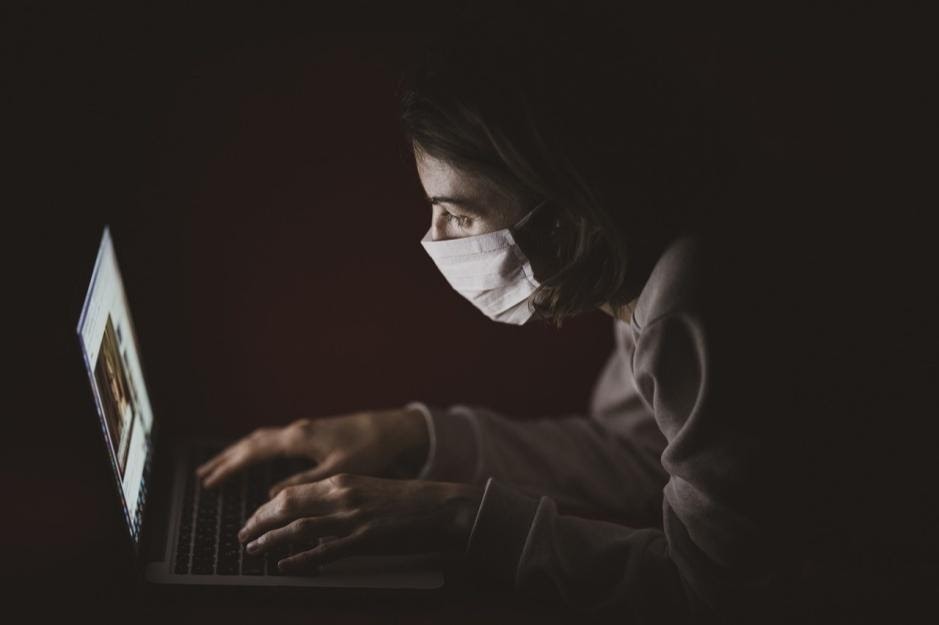Education in the COVID-19 Era: Academic, Financial and Mental Stress
The rise of pandemic COVID-19 enforced a complete shutdown of schools and colleges around the globe. The government had to temporarily close all the educational institutions to stop the spread of the COVID-19 pandemic. It has resulted in massive disruption in the education system in history. Due to the pre-COVID-19 education funding gaps, the education world is facing a challenging financial situation.
The world is currently in the middle of a learning crisis. According to a UNICEF report, 23 countries are facing nationwide closures, and 40 countries are implementing local closures.
Image source: https://pixabay.com/illustrations/girl-study-school-laptop-computer-6028307/
Countries had been implementing remote education programmes to continue education among children. But unfortunately, children in poorer households do not have access to the internet, TVs, personal computers. The whole world is undergoing the biggest shift ever. There is no doubt that the COVID-19 pandemic has unleashed the biggest calamity that humanity has ever encountered.
How COVID-19 impacted the world of education?
- Mental stress
The rise of mental stress had been encountered by many. Nobody was prepared for this, and students especially are confused about how to continue their education. There were students who were already going through important exam preparations, but due to COVID-19, everything hit a pause button. This created a huge pressure among students.
Image source: https://pixabay.com/photos/laptop-woman-education-study-young-3087585/
It is tough to concentrate on your education when your family member or a close friend is infected or has lost life to the virus. Many students had to go through these painful moments. How do you expect a teacher to teach students with a composed mind when there is a death in a family? They were all living in a moment of uncertainty where anything can happen to anyone. Due to the closing of stores, there was also a shortage of foods, medicine and other stationery items. When surviving on a daily basis was so stressful, how can one pay attention to education?
- Loss of income
Colleges are an important income source for so many students. Many students work on campus, but they do not have any financial source due to the present condition. Students do part-time jobs like waitressing in a café, teaching assistant, library monitor, campus tech support, or babysitting. International students who have come to the USA to complete their higher studies in USA feel financially helpless. Neither can they go back home (Due to closures of airports and transports), nor they can afford to pay the rent.
Image source: https://pixabay.com/illustrations/broke-poor-poverty-stress-finance-4025287/
Many have lost jobs due to complete lockdown. Parents stopped paying tuition fees as they started losing jobs which affected the lives of teachers as well.
- No access to the internet or personal computer
Not all families are financially well enough to access the internet and personal computers at home. Pew Research Centre Analysis of 2015 US. Census Bureau data showed 15% of the US. Households lacked high-speed internet connection. Due to the new online class system, students who do not have access to the internet are falling behind in their learning process, not connecting with teachers or classmates, missing out on valuable information. Apart from this, up to 70% of teachers assign homework that cannot be completed without the use of the internet. So without the internet, these students struggle with doing proper research, emailing teachers, and collaborating online with other classmates.
Due to the present condition, schools expect parents to log on to school websites or other online platforms to keep them in the loop for class activities, students’ performance, and grades. Schools are even using internet-based grade books. Unfortunately, certain parents who lack reliable internet access are left behind. An incident of a 50-year-old farmer had committed suicide for not being able to buy a smartphone for her daughter’s online classes.
- Absence of internal assessments
The complete shutdown of schools, colleges, and universities interrupts the teaching and learning process around the world. Due to the pandemic, many tests and exams had been postponed or cancelled. Many colleges and universities have replaced traditional exams with online assessment tools. Thus the efficiency of studying for tests or exams is not the same, and it had been potentially reduced. There are students who had already set plans for their upcoming future, but their future goals are hanging still due to the postponed exams. Students are facing a bigger challenge for proving themselves for their upcoming future.
Due to the absence of grading systems, students are unable to understand where they stand or what part they need to improve to get better. This is not good, especially for students who are trying to get themselves ready for full-time jobs.
- Lack of social interactions
The worst part of COVID-19 is not interacting with your near and dear ones about whatever one might be going through. The pandemic forced the government to take drastic measures, affecting how people socialize with each other. As a government rule, everyone has to maintain the curfew time, thus getting out of home was becoming impossible. Getting used to online teaching/online learning for teachers as well as for students was not easy.
Image source: https://pixabay.com/photos/coronavirus-quarantine-pandemic-4991979/
Teachers were trying their best to make the online classes engaging for students. It is tough to maintain the concentration level when you are not physically present in the class. The social gap was not making it easier for them. Dealing with new academic software and tools that they were not accustomed to, managing students, preparing lessons for the next day, and managing home during the crisis was challenging. The drastic spread of the virus affected the mental and psychological well-being of teachers and students. Social interaction is an important factor in buffering stress. For the closure of schools and the increase of isolation, they were unable to talk to their friends and families. Students mostly were seen dealing with depressive symptoms, loneliness, stress and anxiety.
- Bigger challenges for students with special needs
Children and adolescent with neurodevelopment disorders like intellectual disability and autism require extra attention. They require regular occupational, speech and behaviour therapy. Special needs centres are not geared to offer such services through digital platforms. Due to the rapid social changes, these students are experiencing a major change in their behaviour and mood. Parents of the special needs children reported that they are feeling overwhelmed. Parents are now asked to do a job that even trained teachers often find challenging.
- Online proctoring
The current online education system also raises concerns for academic dishonesty. Switching to rapid remote instruction is creating opportunities for students to cheat. Students unable to recall information under pressure or not to have access to course materials choose to seek assistance from online essay writers. Availing online homework help solutions is rising among students as they have little opportunity to seek proper guidance from their teachers.
Wrapping up,
Although the education board takes severe measures to minimize the disruption, it still continues to impact the future’s readiness. We are all trying our best to adjust to the new lifestyle, but it will take time to get used to the new lifestyle. IEA executive director Dr Dirk Hastedt said, “While education systems are generally slow to change and reforms can often take years, the COVID-19 pandemic has created a massive pressure to expand digital learning quickly…”
Besides economic effects, authorities must take appropriate measures for the mental impact on the communities.
AUTHOR BIO: Clara Smith is a professional blogger and newspaper article in the USA. She has written several articles and blogs on the COVID-19 and its effect on the world. She is also an academic essay writer at Allessaywriter.com.






